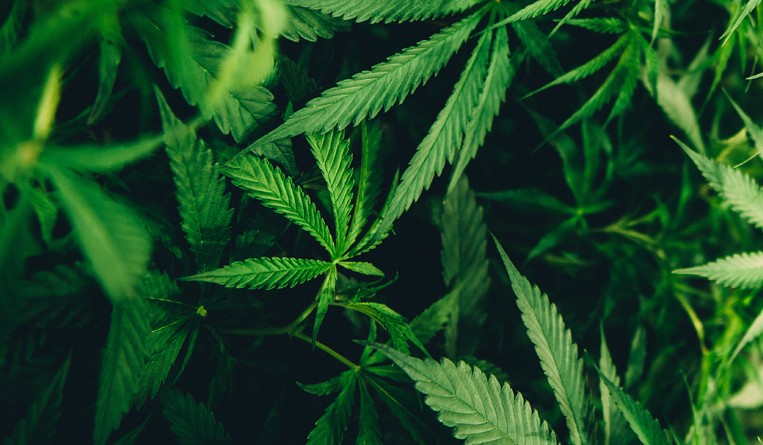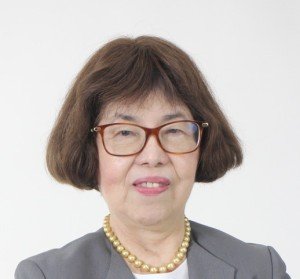Quo Vadis, cannabis patents?
28 September 2023

About 60 countries around the world permit the use of medical marijuana, and a few allow its use for recreational purposes. In 2022, Thailand decriminalized the use of cannabis, but recreational use remains illegal. Possession, cultivation, distribution, consumption and sales of all cannabis plant parts are now legal in Thailand – the first ASEAN country to do so.
In the Philippines, the use of cannabis is illegal under Republic Act 9165 or the Comprehensive Dangerous Drugs Act of 2002. Under this law, cannabis is listed as a dangerous drug which sale, possession, use, importation, manufacturing, cultivation, among others, are prohibited and punishable by law. R.A. 9165 defines cannabis, commonly known as “Marijuana” or “Indian Hemp” or by any other name as “embracing every kind, class, genus, or specie of the plant Cannabis sativa including, but not limited to, Cannabis americana, hashish, bhang, guaza, churrus and ganjab, and embraces every kind, class and character of marijuana, whether dried or fresh and flowering, flowering or fruiting tops, or any part or portion of the plant and seeds thereof, and all its geographic varieties, whether as a reefer, resin, extract, tincture or in any form whatsoever.” Cannabis is on the list of the 1961 United Nations Single Convention on Narcotic Drugs as amended by the 1972 Protocol.
President Bongbong Marcos, during his campaign for the 2022 presidential election, stated that he agrees with the legalization of medical marijuana. He believes in the effectivity of marijuana for medical use, and emphasizes that in case of passage of a bill legalizing it, there should be safeguards and strict implementation to avoid abuse.
According to a survey conducted by Capstone-Intel Corp. and published online by The Thaiger, 63 percent of the Filipino respondents favored the legalization of medical marijuana for therapeutic purposes, provided further research is done and that there are strict policy guidelines for access and dosage control, and that there are increased efforts to raise awareness and education about it.
There is no consensus among medical experts in the Philippines on the use of medical cannabis. In an article published on the ABS-CBN news portal, representatives from the government as well as advocates weighed in on medical cannabis. The Philippine Food and Drug Administration (FDA) expressed support for legalizing medical cannabis as long as it is made available in “pharmaceutical” or “dosage” form like tablets or injectables. Representatives from the Department of Health and the Department of Neurosciences of the University of the Philippines noted that while medical cannabis could provide relief to some symptoms, it does not cure the disease. Advocates, however, asserted that Filipinos have a right to get the treatment they need. According to the Philippines Cannabis Compassion Society, “Science has already been established that cannabis is medicine, and we highly believe as patients this is a basic human right of Filipino citizen, the basic human right to access our right to health.”
Because cannabis is classified as a dangerous drug, patent examiners in the Intellectual Property Office of the Philippines (IPOPHL) tend to reject applications containing cannabis on the ground that it is excluded from patent protection because it falls within the list of non-patentable inventions under Section 22 of the IP Code. To be patentable, an invention must meet three requirements: novelty, inventive step and industrial applicability, and must not fall within the exclusions, one of which refers to “anything which is contrary to public order or morality.” An example is application No. 1/2017/500733 for “Cannabis Extracts and Methods of Preparing and Using the Same”, which entered the Philippines claiming priority from U.S. applications. The examiner rejected all claims for being drawn to a subject matter contrary to public order or morality since the cultivation and use of cannabis is illegal under R.A. 9165. A quick search of the IPOPHL’s data base as of September 15, 2023, shows 26 cannabis patent applications, with five registered patents, to wit:
|
Registration No. |
Title |
|
1/2014/500452 2021.05.20 |
A pharmaceutical composition comprising the phytocannabinoids cannabidivarin (CBDV) and cannabidiol (CBD) |
|
1/2013/501389 2018.10.29 |
Use of the phytocannabinoid cannabidiol (CBD) in combination with a standard anti-epileptic drug (SAED) in the treatment of epilepsy |
|
1/2018/502733 2023.05.08 |
[1,2,3]Triazolo [4,5-D]pyrimidine derivatives with affinity for the type-2 cannabinoid receptor |
|
1/2014/500813U32016.06.17 |
Novel [1,2,3] Triazolo [4,5-D] pyrimidine derivatives as agonists of the cannabinoid receptor |
|
1/2013/501726 2016.12.22 |
Crystalline forms and processes for the preparation of condensed azacycles (cannabinoid receptor modulators) |
Fifteen of the applications have been marked as “Inactive” with its actual status either as abandoned for failure to meet the annuity payments, or not responding to office actions. As seen on the table, all the patents issued were for medical purposes.
There are several bills pending in the Philippine Congress to legalize medical cannabis, such as:
- House Bill 7817 (re-filing of HB 6517)
Title: AN ACT PROVIDING COMPASSIONATE AND RIGHT OF ACCESS TO MEDICAL CANNABIS, EXPANDING RESEARCH INTO ITS MEDICINAL PROPERTIES AND FOR OTHER PURPOSES
Date Filed: March 29, 2023
Bill Status: Pending with the Committee on DANGEROUS DRUGS since May 8, 2023
The bill’s proponent, former President Gloria Macapagal-Arroyo, said the current HB 6517’s “objective is for the patient to have access to safe, affordable, available medical cannabis prescribed by a registered treatment and management of specified symptoms, illnesses and diseases.” In the bill’s explanatory note, Arroyo said: “In the Philippines, thousands of patients suffering from serious and debilitating diseases will benefit from legalizing the medical use of cannabis.” She emphasized recent studies showing positive effects of cannabis use, and the fact that it is being recommended by many licensed physicians in the United States.
According to HB 7817, medical cannabis shall only be accessed through the Medical Cannabis Compassionate Center, an entity duly registered and licensed by the DOH and PDEA to acquire, possess, deliver, transfer, transport, cultivate, manufacture, store, import, sell, supply and dispense medical cannabis. The bill also provided that there shall be a cannabis plant monitoring system which will be used for testing and data collection established and maintained by the cultivation facility and available for inspection for regulatory agencies for purposes of documenting each cannabis plant and for monitoring plant development throughout the life cycle from seed planting to final packaging.
It defined medical use as the use of medical cannabis to treat or alleviate a registered qualified patient’s debilitating medical condition or symptoms associated with his debilitating medical condition, and shall include its acquisition, possession, transportation, delivery, dispensation, administration, cultivation, or manufacturing for medical purposes.
The bill also states that no instance shall cannabis be used in its raw form.
- House Bill 6783
Title: AN ACT REMOVING CANNABIS AND ANY FORM OR DERIVATIVE THEREOF FROM THE LIST OF DANGEROUS DRUGS AND SUBSTANCES UNDER EXISTING LAWS, AMENDING FOR THE PURPOSE SECTIONS 3(J), 11, AND 16 OF REPUBLIC ACT NO. 9165, OTHERWISE KNOWN AS THE COMPREHENSIVE DANGEROUS DRUGS ACT OF 2002, AS AMENDED
Date Filed: January 16, 2023
Bill Status: Pending with the Committee on DANGEROUS DRUGS since March 21, 2023
This bill seeks to decriminalize marijuana use not only for medical purposes but also for recreational purposes. In its explanatory note, proponent Rep. Pantaleon Alvarez emphasized that marijuana’s benefits outweigh its supposed harm. He also explained that aside from its medical use, other reasons for legalizing cannabis are for economic and tax purposes.
Should any of the above pending bills get approved, it is expected that more cannabis patent applications will be filed.










